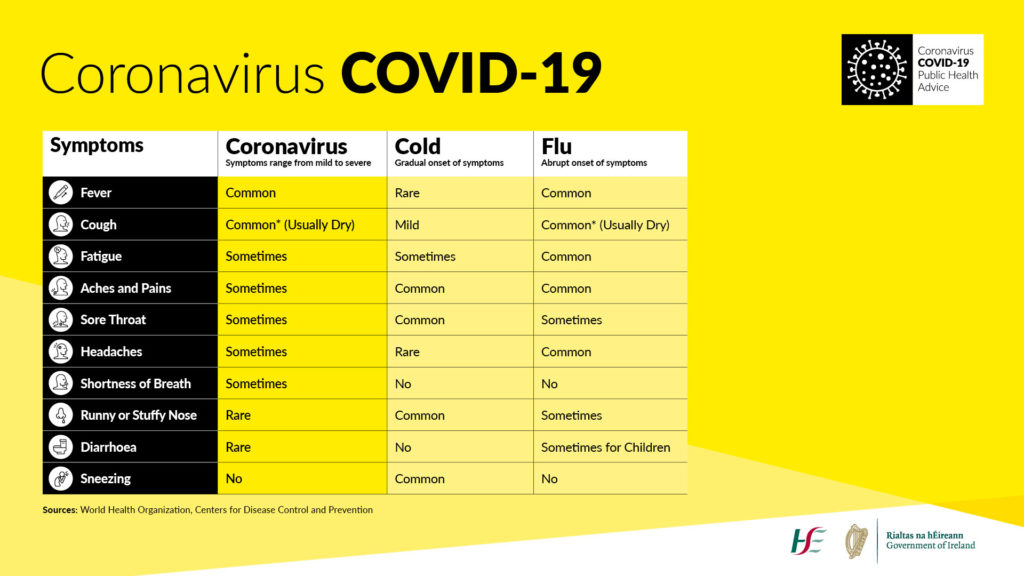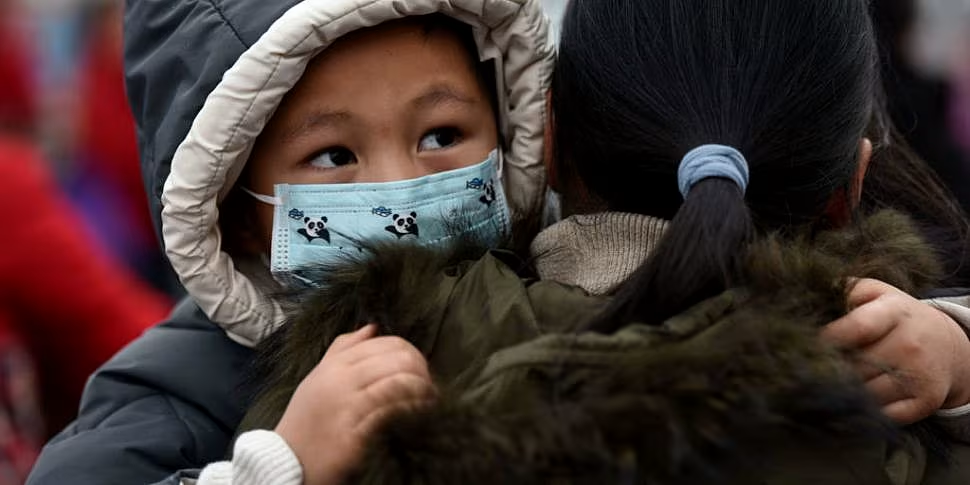What is coronavirus (or COVID-19)?
COVID-19 affects people's lungs and airways and is caused by what's known as coronavirus.
It can take up to 14 days for symptoms to appear, which means people could have the virus, but not be aware of it.
The symptoms
The most common symptoms of coronavirus are:
- Any kind of cough
- Shortness of breath
- Breathing difficulties
- Fever
But there are differences between the coronavirus and the standard flu.

How coronavirus is spread
You could get the virus if you:
- Come into close contact with someone who has the virus and is coughing or sneezing
- Touch surfaces that someone who has the virus has coughed or sneezed on
It's not known how long the virus will survive if someone who has it coughs or sneezes onto a surface.
Simple household disinfectants can kill the virus on surfaces - clean first and then disinfect.
Who is at risk
The World Health Organisation says one in every five people could need hospital treatment.
It is a generally mild illness apart from that - especially for children and young adults.
What to do if you think you have symptoms
If you think you have symptoms - do NOT go to a hospital or a GP.
It's advised that you should call a doctor if you have symptoms and have:
- Travelled from an affected area
- Been in close contact of a confirmed case in Ireland.
Close contact means living in the same house as an infected person, or spending more than 15 minutes face-to-face contact.
I have been in close contact and have symptoms - what now?
If you have symptoms and have been in close contact with a confirmed case in the last two weeks, you should do the following:
- Isolate from other people in a different room - make sure you have a phone
- Call your doctor or local hospital immediately.
- If your symptoms are severe - call 999 or 112.
Your doctor may also suggest you are tested for coronavirus if you have a severe lung infection.
In addition, if your doctor thinks that you need a test for coronavirus, they will tell you where the test will be done. They will also tell you when to expect your results.
Should I wear a mask
If you're not ill or looking after someone who is ill - then you're 'wasting a mask' according to the WHO
It says only people with COVID-19 symptoms or looking after someone who may have the virus should wear a mask.
Disposable face masks can only be used once.
How to protect against COVID-19
The most effective ways to protect yourself and others against coronavirus are to clean your hands, cover your cough with the bend of elbow or tissue and maintain a distance of at least three feet from people who are coughing or sneezing.
Having clean hands is the best way to stop the spread of harmful germs.
Is there a treatment?
There is no specific treatment for coronavirus - but many of the symptoms of the virus can be treated.
If you get the virus, your healthcare professional will advise treatment based on your symptoms.
In addition, antibiotics do not work against coronavirus or any viruses.
There is currently no vaccine to treat or protect against coronavirus.
Travel advice
Follow up-to-date travel information from the Department of Foreign Affairs and Trade for travel advice on countries and regions affected by Coronavirus.
Specific travel information is available for areas:
- China
- Hong Kong
- Singapore
- South Korea
- Iran
- Japan
- Italy
- Spain
If you travel to an area with widespread local transmission of coronavirus, the risk of catching the virus is high.
In addition, the World Health Organization publish daily information on rates of local transmission.
Irish citizens who are abroad, or who intend to travel abroad in the near future and have concerns about coronavirus, can ring the Department of Foreign Affairs' dedicated phone line: +353 1 613 1733
Useful links
For more information, use the following websites:
HSE
Department of Health
World Health Organisation
Department of Foreign Affairs (for travel guidance)












